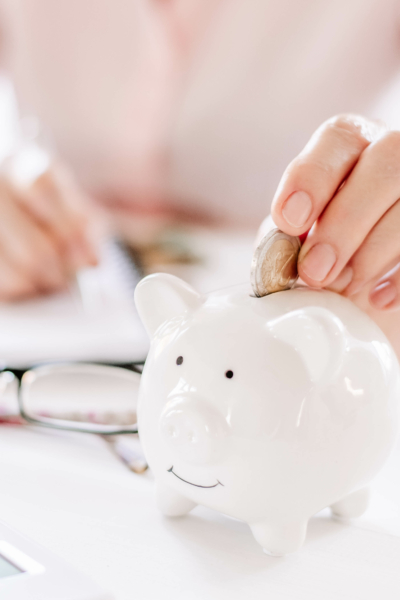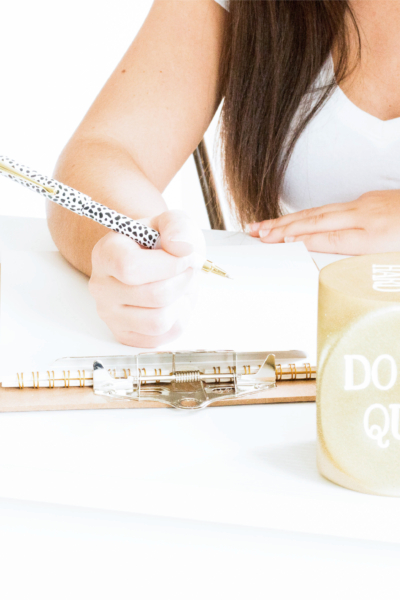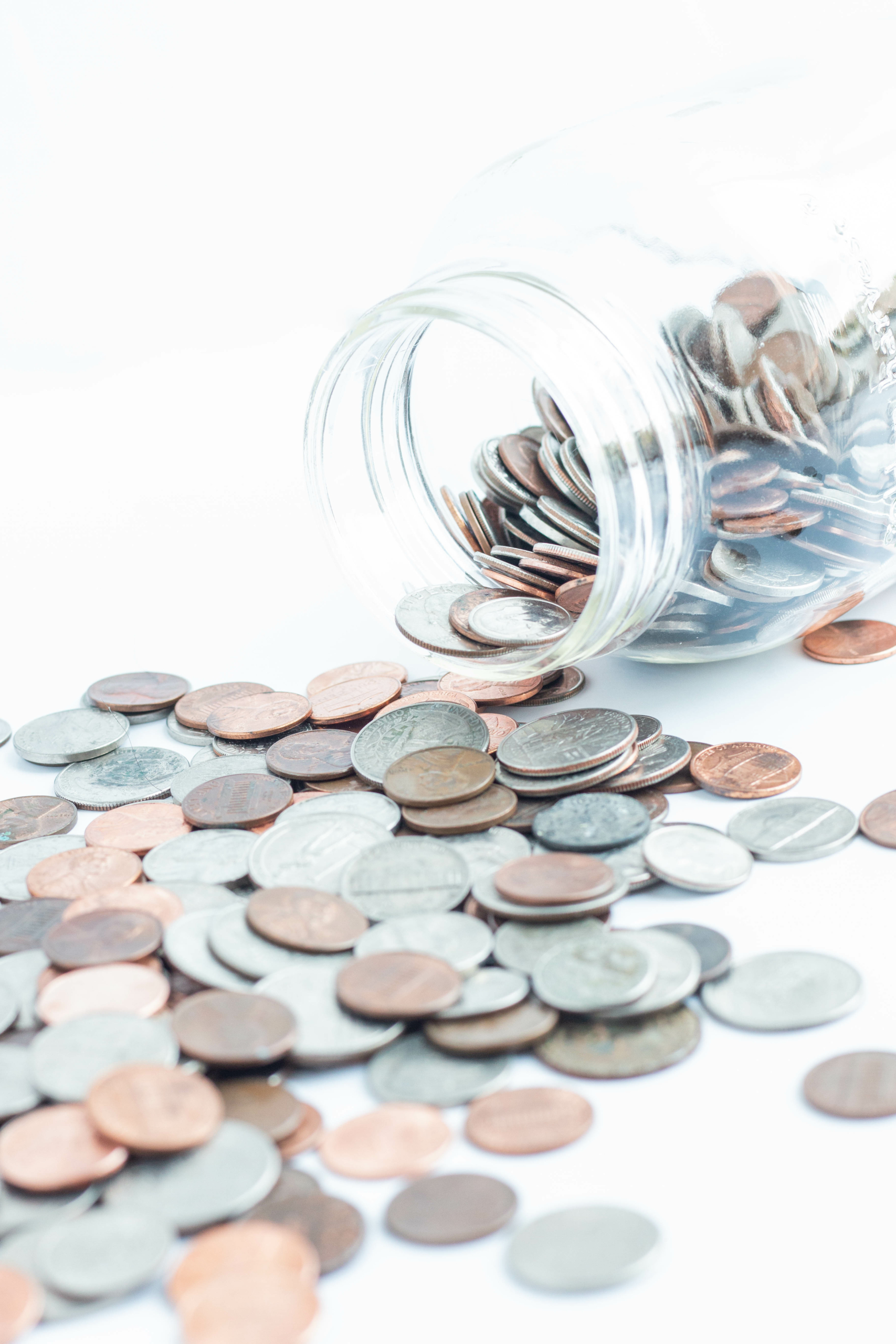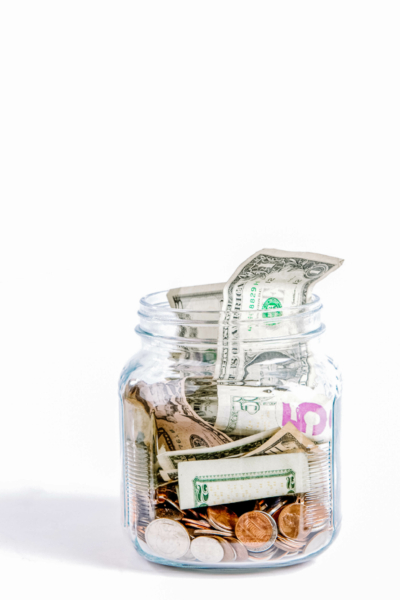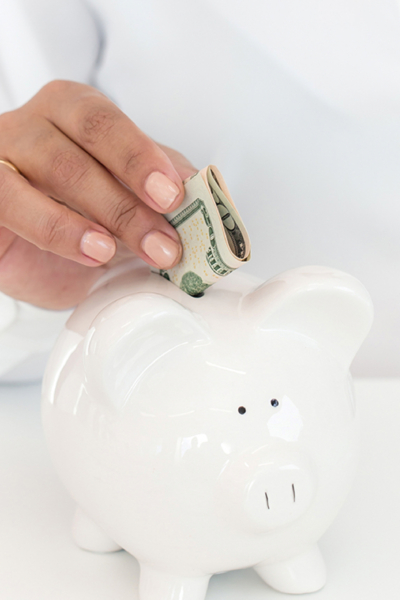The world spends millions of dollars each year on discovering new ways to trick you out of your money.
How do I know this?
Because I worked in the banking industry for 10 years.
I saw behind the scenes; things that the average consumer never will. I was trained how to make people think we are on their side, to gain their trust, and “ease” them into (code words for manipulating them into) doing what the company wanted them to do. Are all banks bad? No. But there are many that are. I know, because I was a part of that world.
Here’s the funny thing. I never obeyed my bosses. I know, crazy right?! But, I didn’t. When they weren’t looking, I did what I wanted. Sold my customers how I personally felt comfortable, how I’d want to be sold…with integrity.
The truth is, that everyone always wondered how I was so successful. Why I was flying by in sales more than anyone else. One job, I worked at 3 months and hit more sales than someone who was the best at sales before I got hired on. She worked there 5 years at the time. I was unstoppable, on fire. But, I never told anyone my secret of how I made so many sales.
Wanna know what it is?
I was honest. I was genuine. I really WAS on the customers’ side. My transparency showed through.
It’s simple. I am who I say I am. I am here for your benefit. I do honestly have your best interest at heart, even if it means my sacrificing money, sales, whatever. And people are smart. They can tell who’s genuine and who’s not.
I took those same principles with me wherever I went. When I started network marketing, it was the same. I got more sales than my upline, who were complete fakes. They could never figure it out why I always did so well.
The same was true on eBay. I’d go out of my way to make sure my customers were happy, putting their needs ahead of money or whatever else the bottom line is.
And, you guessed it, I do the same exact thing on this blog. My philosophy is not “fake it til you make it.” That’s stupid.
My philosophy is be kind to everyone, and out of a sincere and genuine heart, just try to meet needs and help people. If you do that, the rest will follow, the money, the fame, or whatever else it is the world is seeking after at the moment.
Being a part of all those worlds for so long, and seeing how others do it all wrong and seeing how companies actively spend so much money training, hiring, and trying to “manipulate” people out of their money, I am, quite literally, the perfect person to write this post. I’ve seen it all…yes…all of it.
It’s a very subtle and sneaky world they are a part of to try to pry loose your money from your hands. You may not even realize you’re being tricked, but you are. The best way to fight back, you ask….know what your up against. Know the most subtle tricks, so that you’re not deceived. It’s really as simple as that!
Here are THE most sneaky 5 major money traps you probably fall into.
I guarantee you fall for at least one of these traps, if not more. But don’t worry, it’s not your fault. They are super good at what they do, and it’s my job to teach you about them, so that you are no longer tricked!
5 Major Money Traps You Probably Fall Into
You go for instant gratification
In today’s fast, dog-eat-dog world, this is an easy one to fall into. It can be as small as paying for convenience foods or as big as buying something large you don’t have the patience to save for, but instant gratification can often lead to big money problems.
Things like going out to eat because we are tired and don’t feel like cooking is a great example of instant gratification, but it all adds up very quickly.
Not sure you agree that eating out is costing you more cooking at home meals? Give it a two week challenge. In the first week, practice your normal habits. Save each and every receipt from restaurants, coffee and snack stops, and grocery stores. At the end of the week, add up what you spent to determine your total food cost for the week.
In the second week, vow to not spend one single dollar at a restaurant and prepare all your own meals. They don’t have to all be gourmet dinners, but no going out to eat at all. Hang on to all of your receipts and total them at the end of the week. Do you see a difference in that test?
Instant gratification isn’t only a problem when it comes to meal time. It’s any time that you purchase something impulsively, without regard to the effects that it might have. For that reason, certain habits need to be put in place to curb impulsive spending habits.
Do you find that when you go to the store you come home with items that you just couldn’t pass up? If so, start making lists and promise yourself that you will only get the things written on your lists. In the event of big purchases (furniture, homes, cars, etc.) make sure that you research what you think is going to be best for you and your family (as well as your budget) before signing on the dotted line.
The word “free” is all it takes to sell you on something
Free is an incredibly alluring word and it can make you think you are getting in on some secret deal, but “free” often comes with a higher price tag in the end. For instance, some stores will throw in a small item for free when you buy a larger item you might not even need. If you buy it anyway, just to get something for free, you are wasting money.
If you see that an item is listed as free (if you purchase something else) and you really have no use for the purchased item, check the cost of the “free” item. Chances are that the free item is cheaper than the cost of the purchased item…so just buy the free item instead (if you need it). Weigh your options of what you NEED and the amount that you will spend to get it.
The concept of “free” is used as an advertising tactic to get buyers interested in looking at a specific store or product. Ask yourself if you would consider that store or purchase, even if the freebie wasn’t being offered as an incentive. If your answer is, “No,” then maybe it’s best that you walk away…quickly.
The idea of free is also used to entice buyers to make decisions despite if they’re in a position to do so. Furniture, for example may be advertised as “free” financing for 24 months. That sounds great, but if you furnish your living room and can’t pay off your new décor in less than 2 years, then the interest rates that you’ll be charged will be very high. Before making a large purchase, regardless of the financing offers being advertised, look at how much you have to spend. How much do you have in the bank right now? Always live within your means if at all possible.
You don’t reevaluate your budget often
A budget should be re-evaluated at least once every 3-6 months to make sure that it still meets your needs and see if anything can be changed or lowered. If you follow the same budget for years, you may be missing out on lots of money saving opportunities.
In reevaluating your budget, first look at the money that you’ve spent in different categories. Did your utilities go up? If so, is there something that you can do to use less water or gas? Are there habits that you’ve developed that could be changed?
Next look at your food budget and think about how you spend your money in that area. Is there anything that can be done to lessen your grocery bills, or are you already doing your best to spend less? As you go through each category, reflect on your spending habits, making sure that you’ve budgeted enough, but not too much, for each category of spending.
As your income increases over time, or bonuses come into play, make a habit of not building it into your budget, unless absolutely necessary. Rather, plan for that additional income to go directly into savings or your retirement plan. Over time, that increase will add up and will put you in a better place in your saving account.
You don’t know when to give up
Sometimes giving up can be better for your finances. For instance, it makes no sense to keep putting money into a home that you no longer need because it is too large for your situation or a car that is at that point where is just keeps breaking down. Downsizing and giving up things that no longer suit your current situation are tough decisions, but will save you money in the long run.
Being honest with yourself about whether you need to make changes in your lifestyle is really tough! It’s important to reflect, either by yourself or with your spouse, on your priorities and whether your current choices are a reflection of what you see as important.
First, think about your home. Do you have a growing family, or has your family grown up and moved away, making for a too-big of a house for one or two people? Rather than closing your mind to the idea of downsizing, think about the money that you would save if you were to choose to live in a smaller house, if in that stage of life. In thinking about your home, consider too, where you live. Some areas have higher property taxes and cost of living costs than others. Ask yourself if you take advantage of the amenities that are typically the result of higher home expenses, if the answer is, “No,” then maybe it’s time to consider a change in location.
Next, think about your car. Cars are necessary (unless you live in a place with great public transportation). You make a car purchase and, as soon as you leave the lot, you have car payments and the value of your car begins to depreciate. Over time, though you may have paid off the car, the money that you put into repairs may begin to exceed what you initially spent on your car payment. If you find yourself in this situation, it may be time to think about replacing your older car with a new “used” car. You may find that the financing available on a used car purchase will cause you to spend less per month.
Are you trying to keep up with the Jones’s? So much time and money is often spent trying to make yourself and your family appear that you’re every bit as good as the next person. When making decisions on major purchases or your day to day spending habits, make sure that you are buying things that you want or need…not because it’s what the neighbor says you have to have. Similarly, when you choose memberships, such as gym, pool, etc., make sure that you are happy with your decisions and would make your choices regardless of the influences of others. If you find that your lifestyle reflects trying to keep up with others, you may want to think about the money that you would save if you lived for you!
Not accounting for small purchases because you think they don’t matter
This one is something most people do. These are things like that soda you bought at the gas station, those Girl Scout cookies you bought on your way into the store and that $1.99 app for your iPhone. While it may seem like such a small purchase, if you make just $10 in these small purchases a week…that adds up to $40 a month and over $480 a year!
Like with each of the other money traps mentioned, this is one that takes some major reflection. You may not even be aware of how much you spend on the quick stops that you make here and there. Maybe you have a coffee habit everyday on your way to work, or are known to stop for a snack on the way home. Over the course of time, these small costs really do add up! If you’re not aware of the amount you spend on coffee, bottled water, etc. make a habit of hanging onto your receipts for a week. At the end of the week, add up the total cost of your fast stops. You may be surprised by how much you’re spending.
If you’re unhappy with your total amount spent, there’s an easy fix: be prepared!
Make your coffee at home and take it with you in the morning (a $10 can of coffee last several weeks, whereas basic coffee bought out, will cost about $10 per week…not to mention fancy coffee drinks!) Buy bottled water and keep it in the fridge to take with you, rather than stopping while you’re out or have a reusable container that you can refill at the nearest water fountain. Stock your glove compartment with granola bars and small bags of mixed nuts for a healthier and less expensive alternative to snack stops. Being prepared can be your best friend when looking to combat the the cost of small purchases.
Once you know how much you spend, you may choose to hang on to one of those money trap habits. If you do, then own it. If you decide that you’re okay spending money on coffee every morning, then account for that in your budgeting and choose not to spend the money elsewhere. Rather than having lunch out, you may take it with you in exchange for your coffee. It’s all a matter of looking at where you want to spend your money and making yourself aware of where it’s going so that you can make the best choices for yourself and your family.
